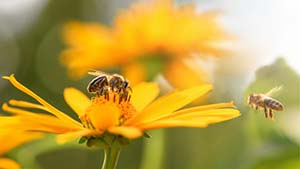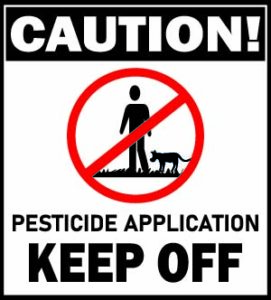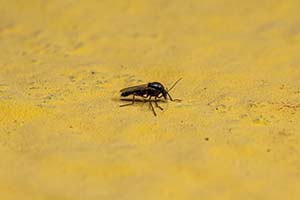
FAQ About Mosquito Misting Systems
Why an FAQ on Mosquito Misting Systems?
Along the years manufacturing innovative mosquito misting systems, we have received and answered a number of interesting questions from clients — both residential and commercial — who are considering installing a system and gathering information about the pros and cons. In this FAQ we endeavor to bring simple answers that make sense, and refer our visitors to other answers elsewhere in our website. The links inside the answers direct to specific pages where we hope to offer a full view of the workings of these systems.
What is a mosquito misting system?
A mosquito misting system is an outdoor pest control solution designed to reduce mosquito populations in a specific area. It involves the installation of a series of nozzles that release a fine mist of insecticide (synthetic or natural) at predetermined intervals, effectively killing or repelling mosquitoes and other insects.
How do mosquito misting systems work?
Mosquito misting systems typically consist of a reservoir, a pump, a timer or controller, and a network of nozzles strategically placed around the perimeter of an outdoor space. The system releases a fine mist of insecticide at scheduled intervals, which kills or repels mosquitoes and other insects within the treated area. The intervals are determined by environmental factors, the season, as well as the topography of the site.
Are mosquito misting systems safe for humans and pets?
When used according to the manufacturer’s instructions and guidelines, mosquito misting systems are generally considered safe for humans and pets. The insecticides used in these systems are typically approved by the Environmental Protection Agency (EPA) for residential use. However, it is essential to follow all safety precautions and ensure that people and pets are not present during misting cycles.
What types of insecticides are used in mosquito misting systems?
The most common insecticides used in mosquito misting systems are pyrethroids, a synthetic version of natural pyrethrum derived from chrysanthemum flowers. Pyrethroids are known to be effective against mosquitoes and other insects while being less toxic to mammals and birds. Some systems may use natural or organic insecticides, such as those derived from essential oils or other plant-based sources.
A-Niks has formulated a unique and proprietary blend of essential oils that works extremely efficiently to control your insect population while reducing impact on non-target insects. (We plan to answer more questions about this important topic in our FAQ).
How effective are mosquito misting systems?
When properly installed and maintained, mosquito misting systems significantly reduce mosquito populations within the treated area. However, they may not completely eliminate all mosquitoes, as some may still enter from untreated areas. The effectiveness of a mosquito misting system depends on factors such as the type of misting system (DIY or commercial), the size and layout of the area, the type of insecticide used, and the frequency of misting. A-Niks proprietary botanical insecticide is extremely efficient.
How much does a mosquito misting system cost?
The cost of a mosquito misting system depends on factors such as the size of the area to be treated, the complexity of the installation, and the specific system’s features. Prices can range from a few hundred dollars for small, portable DIY systems to several thousand dollars for larger, professionally installed systems. Contact A-Niks to get a free estimate for a system with an inspection of your outdoor space.
How do I maintain my mosquito misting system?
Routine maintenance for a mosquito misting system includes checking and refilling the insecticide reservoir, cleaning and inspecting nozzles for clogs, and periodically flushing the system to remove any debris or sediment. It is also essential to monitor the system for leaks or damage and make repairs as needed. A-Niks ensures a professional maintenance service.
Are there alternatives to mosquito misting systems?
Yes, there are several alternatives methods to control mosquitoes in your outdoor space. Automated spraying systems can be a solution in certain outdoor spaces. It is also possible to use mosquito repellent plants, citronella candles or torches, bug zappers, mosquito traps, and personal insect repellents. Additionally, you can implement mosquito control measures such as eliminating standing water, using larvicides, and maintaining screens on windows and doors.
Can I install a mosquito misting system myself, or should I hire a professional?
DIY system kits can be purchase at DIY stores and you can install them yourself as they are rather simple. Hiring a professional installer like A-Niks is the best option however when your outdoor space is large. A professional installer designs the mosquito misting system based on a long series of measurements and calculations to ensure proper coverage, system efficiency, and ease of maintenance. Our installation specialists have a long experience of the specific requirements of mosquito misting systems and they will design and build the most effective solution for your outdoor space.Do mosquito misting systems harm beneficial insects like bees and butterflies?
 Just like spraying, mosquito misting systems will harm beneficial insects like bees and butterflies if these come into contact with the insecticide mist. The problem is the type of insecticide used in the system. Synthetic compounds such as pyrethroids do not discriminate between target pests like mosquitoes, and beneficial insects. To reduce this impact, A-Niks uses an insecticide made of a proprietary blend of essential oils which acts has a mosquito repellant. Contact us for details.
Just like spraying, mosquito misting systems will harm beneficial insects like bees and butterflies if these come into contact with the insecticide mist. The problem is the type of insecticide used in the system. Synthetic compounds such as pyrethroids do not discriminate between target pests like mosquitoes, and beneficial insects. To reduce this impact, A-Niks uses an insecticide made of a proprietary blend of essential oils which acts has a mosquito repellant. Contact us for details.
Can mosquito misting systems be used indoors?
No, mosquito misting systems are designed specifically for outdoor use. Using these systems indoors poses risks to human health and pets due to prolonged exposure to insecticides. For indoor mosquito control, use insect traps, repellent sprays, and other indoor-safe solutions.
How often should my mosquito misting system be activated?
The frequency of misting cycles depends on factors such as mosquito activity, local climate, and the specific system’s recommendations. Generally, systems are programmed to mist 2-3 times per day, often at dawn and dusk when mosquito activity is highest. The frequency can be adjusted based on individual needs and preferences.
Can I use my mosquito misting system to control other pests?
While mosquito misting systems primarily target mosquitoes, they are also effective against other flying insects, such as flies, gnats, and no-see-ums. Some insecticides can also provide limited control of crawling pests like ants and spiders. A-Niks’ pest control technicians offer advice to ensure proper usage and effectiveness against specific pests.
What are some environmental concerns typically associated with mosquito misting systems?
 The use of insecticides raises concerns about the potential impact on the environment, including contamination of water sources, harm to non-target organisms, and the development of insecticide-resistant mosquito populations. To minimize environmental risks, A-Niks offers a choice of products ranging from all-natural solutions to man-made repellents specially formulated with low toxicity.
The use of insecticides raises concerns about the potential impact on the environment, including contamination of water sources, harm to non-target organisms, and the development of insecticide-resistant mosquito populations. To minimize environmental risks, A-Niks offers a choice of products ranging from all-natural solutions to man-made repellents specially formulated with low toxicity.
What type of mosquito misting systems can be installed in a commercial setting?
The types of mosquito misting systems that be used in settings settings such as restaurants with outdoor seating, golf courses, parks, resorts, etc., are commercial-grade. Their size and sophistication helps create a comfortable environment for customers/guests. Our engineers and professional installers design and build systems fully configured for a specific space.
Do you warranty/guaranty your mosquito misting systems?
Yes, of course. All reputable manufacturers and installers offer a warranty or guarantee on their products and services. Call us for details.
Do you need a local permit to install a mosquito misting system?
Permit requirements and regulations for mosquito misting systems vary by location. In some areas, permits are necessary, in some others, they are not. We know the applicable local ordinances and state regulations to your location, and we will be able to determine whether you need a permit or not.
Should one use a mosquito misting system together with other mosquito control methods?
Mosquito misting systems can be part of an integrated mosquito management strategy that includes other control methods, such as eliminating breeding sites, using larvicides, and implementing personal protection measures. The combination of multiple mosquito control methods tends to enhance the overall effectiveness of a mosquito management plan.
What is the high season for mosquitoes and No-See-Ums in Florida?

In Florida, mosquitoes and no-see-ums (a.k.a. biting midges) are most active from March through October, during the warmer months. In the southern parts of the state, these pests can remain active year-round because of the heat and humidity. The high season for mosquitoes and no-see-ums coincides with periods of monsoon and standing water, ideal breeding conditions for these insects.
When to treat outdoor spaces to kill mosquito larvae?
To control mosquito populations effectively, it is best to start treating outdoor spaces before the high season. Targeting mosquito larvae before they mature into adult mosquitoes helps prevent infestations and reduce the overall population in a given place. In Florida, this generally means beginning larval treatments in late February or early March, depending on the specific area and weather conditions. Some counties continue treatment all the way into April. Treat regularly throughout the high season to maintain effective control. This is where mosquito misting systems make a big difference compared to manual spraying.
HELP US EXPANDING THIS FAQ
If you are new to Florida like many newcomers to the State, we know you have questions about the place where you live and its exposure to mosquitoes and other flying and crawling pests. You may also have questions about beneficial insects and how they should be protected. We welcome your questions. We have years of experience in pest control and will do our best to bring you practical answers. Use our contact form to ask your questions, or call us directly.


